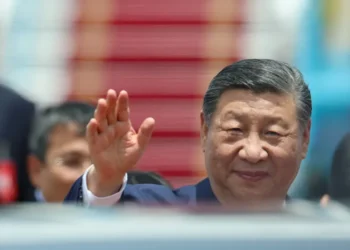The United Nations has urged global leaders and stakeholders for a faster and expanded debt relief to all developing countries that place request for assistance, as well as the rollout of a more equitable vaccination programme.
UNDP’s Administrator, Achim Steiner made these remarks on behalf of the United Nations during the yearly spring meeting held this week. Participants included the IMF, World Bank and the International Monetary and Financial Committee Board of Governors during the yearly spring meeting held this week.
She opined that an impending global development crisis can be overturned if the world avoids a debt crisis. While forcefully suggesting that, “This is no time for austerity”.
Speaking on behalf of the UN Secretary-General, Steiner again noted that 84 percent of COVID-19 vaccines administered so far have gone to richer countries. Meanwhile she urged that swift measures be put in place in order to close major gaps in vaccine funding and production for poor countries.
Although the world’s largest economies have historically disbursed US$18 trillion in fiscal support, keeping people and economies afloat amid surging poverty, joblessness, and hunger. However many developing countries cannot invest in recovery and resilience because of financing constraints, Steiner noted.
“The least developed countries have spent 580 times less in per capitaterms on their COVID-19 response than advanced economies. This division is starkly reflected in global access to vaccines. The work is not done until vaccines are in arms around the world and until the divergent paths of recovery correct course.”
Achim Steiner, UNDP Administrator
Debt Relief must be expanded
On the issue of fears of risking credit ratings applying for the debt and debt service relief, Steiner called for stakeholders to provide legal and technical advice to countries. She also called for expansion of debt relief eligibility to include additional vulnerable countries on a case-by-case basis.
“The economic and social costs of the COVID-19 pandemic have been unprecedented,” Steiner said. Additionally, she urged governments and creditors to extend liquidity and debt relief to all developing countries that request it.
“We are witnessing a two-tiered global response. Among the most vulnerable countries, the general availability of vaccines could be many months, if not years, away. The risk of another lost decade of development and a failure to achieve the Sustainable Development Goals is high and rising. To help mitigate this risk… donors must meet their aid commitments and provide fresh concessional financing, especially but not only for the poorest countries.”
Debt vulnerability of developing countries were already high even before the pandemic hit. Based on a new report by the UNDP, the debt vulnerabilities of 72 developing economies would remain high from 2021-2025.
The report also estimates that a minimum of US$598 billion being external public debt service payments are at risk. That notwithstanding, the most significant threat is not the risk of defaults but the possibility of prolonged debt crisis.
While assisting debt vulnerable countries require extending debt reliefs, building back better also involves revamping taxes and trade policies alongside closing gaps with illicit financial flows, she asserted.






















